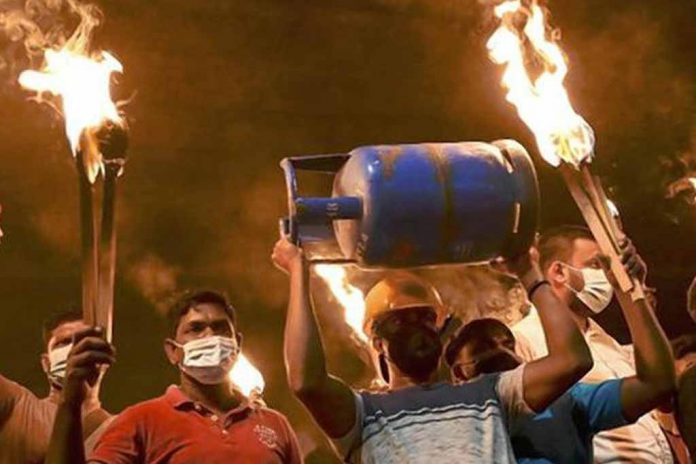A severe foreign exchange crisis has been devastating the country for several months. As a result, shortages of milk powder, wheat flour and gas occurred from time to time, eventually leading to shortages of fuel and occurrence of power cuts.
In the midst of this crisis, opposition parties, including the Samagi Jana Balawegaya and the National People’s Power, as well as some parties of the Ruling Party, began to level the idea that the foreign exchange crisis had occurred due to the government’s move of artificially controlling the Rupee value and that the Rupee, therefore, should be allowed to float immediately; not to mention that they did not forget to ridicule Finance Minister Basil Rajapaksa and Governor of the Central Bank of Sri Lanka Ajith Nivard Cabraal in what they claimed as inability to understand such a simple solution.
Bearing all criticism, the Central Bank Governor stated that allowing the Rupee to float was not a simple task and that it would have a severe effect on inflation. He thereafter tried to lure foreign remittances into the country’s banking system by barring migrant workers from remitting money through illegal means such as Hawala and Undial, however, to no avail.
At the end, the Rupee was allowed to float, fulfilling the request by hundred thousands of devotees of the Ruling Party and the Opposition.
Their criticism has taken another route against the Finance Minister and the Central Bank Governor in the event that the Rupee is depreciating sharply. According to their theory, it would be both wrong to do and not to do what they are asked.
The prices of commodities have not yet begun to soar in comparison of the Rupee’s depreciation against the Dollar. Commodity prices too will skyrocket in a matter of days. Only then those who had demanded the floating of the Rupee will continue to blame more and more as if they were not aware of what they had previously asked for.
This is the nature of the people of our country; especially those who master politics and economy only on Facebook.
Declaring decisions about the country’s economy to be the simplest choices even they can take, these critics initially blame the government for not implementing them, and then continue to blame it for the consequences of these decisions being implemented.
We recall the recent times in which a similar issue had arisen regarding the lockdown of the country amid the Covid pandemic.
Nonetheless, facing an economic crisis with a people complaining about the inevitable consequences of an action taken based on their own demand for which they do not even bear responsibility is not a difficult task, but an impossible one.
There is no doubt that various parties have different opinions of how this economic crisis came to play in the first place. But pointing fingers at each other and wasting time will not work for anyone, nor will gain even a cent instead of a Dollar.
Therefore, we reiterate that all political parties, first of all, shall be coming together and reaching onto a common ground in the establishment of a political stability in view of facing this crisis.
But the popular practice of petting people and blaming ‘the 225’ will never provide any solution to the country’s problems.
- Translated from original article by Darshana Weerasinghe
